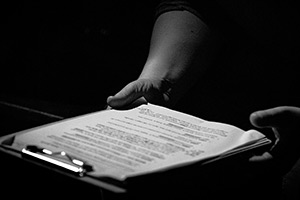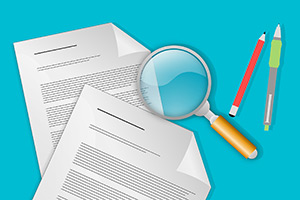My Comedy Career: Ed Morrish
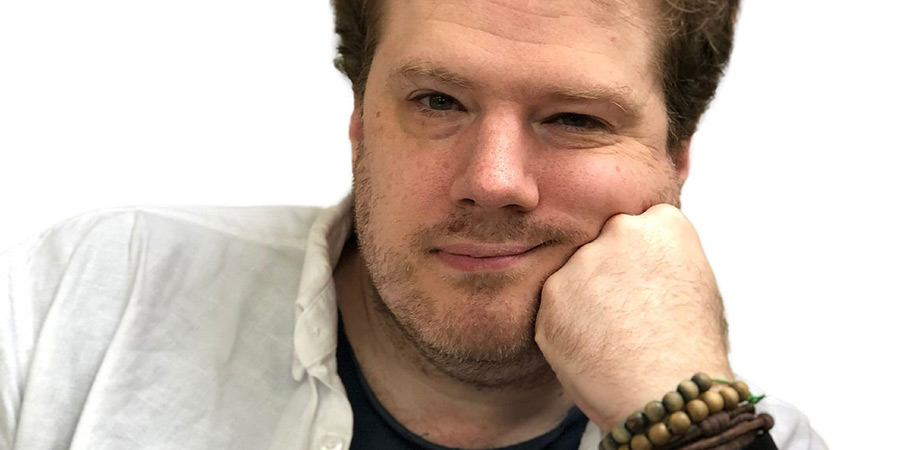
As the podcast Sound Heap returns for a second series, experienced audio producer Ed Morrish talks us through his career, and explains there are no shortcuts to making good shows.
Tell us what you do in your job.
I'm an audio producer, which means I have overall responsibility for a programme. This ranges from developing ideas with comics and writers, coming up with my own ideas, pitching, casting, script-editing, directing, and editing. Oh, and you're floor manager, too. And now that I run my own company (Lead Mojo), I also do all the paperwork and budgetary stuff as well.
I am probably best-known for my work with John Finnemore on his Souvenir Programme and Paul Sinha on his various series (Citizenship Test, History Revision, General Knowledge and, now, Perfect Pub Quiz), as well as Rosie Holt's podcast NonCensored.
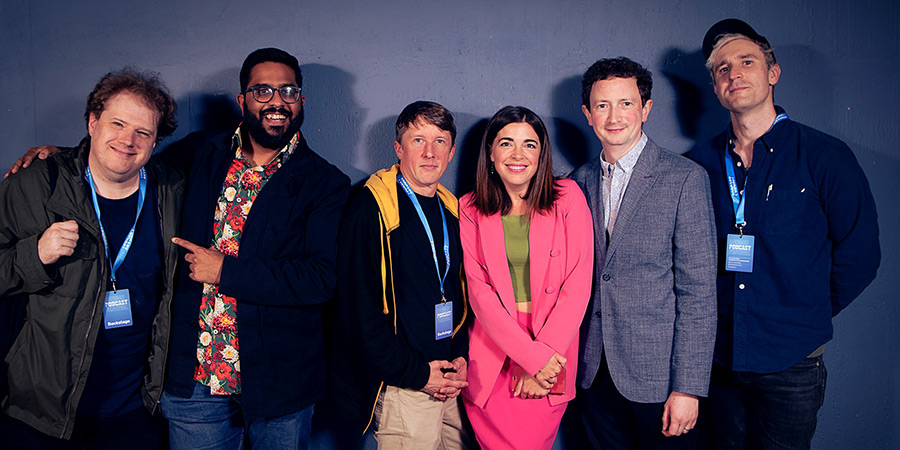
I'm not sure most people conceive of producers, so I doubt they could have misconceptions about it. Ideally, we shouldn't be noticed. Maybe writers/performers have a misconception that we're a) right about everything (so if you just do literally what we ask, everyone will love your show) or b) wrong about everything (so everything we suggest should be ignored), instead of the truth, c) sometimes we're right and sometimes we're wrong.
How did you first get involved in the comedy industry?
I applied for a trainee radio producer position at BBC Radio Light Entertainment in 2002 and got it despite having no experience in comedy or radio other than as an audience member. Who knew life would be so easy for a middle-class white boy with an RP accent?
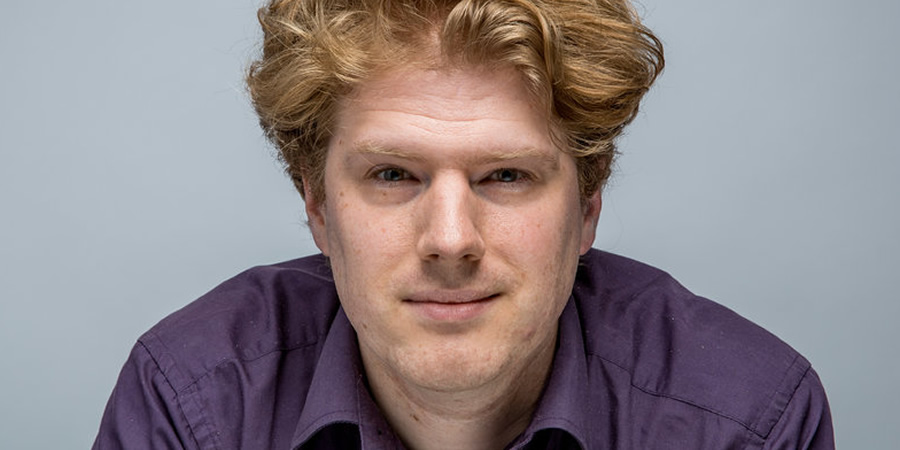
What key skills do you need to be able to do your job well?
It's all just the application of taste, to be honest. There's no 'right' or 'wrong' way to do things, just ways that you like and ways that you don't; my stuff isn't better than anyone else's, it just makes me laugh more. (The audience can, and often does, disagree.) So, being able to express those views in a way that other people can understand is the key skill - whether that's explaining to a writer why they should change a joke or explaining to a commissioner why they should buy your show. Other than that side of things, you do need organisational skills, because you're the person responsible for making the show happen - so have you booked the studio/cast (or have you told your production co-ordinator to; you still need the skills to ask someone to do something in a timely manner...).
What has been your biggest career achievement to date?
This answer would depend on when you ask, and what you mean. The best-sounding single episodes I've produced have probably been the Ethiopia episode of Lemn Sissay's Homecoming and the Kolkata episode of Andy Zaltzman's Empire-ical Evidence, but the best all-round episode of anything was the sixth episode of the seventh series of Souvenir Programme. I also won a Rose d'Or with Paul Sinha, which was hugely pleasing, and they stopped doing an award for Radio Comedy after that year, meaning we are still the reigning holders.
And what has been the biggest challenge/disappointment?
I have tremendous survivor's guilt about the stuff that doesn't get bought because you know that it means the writer and cast and crew won't get paid but I - having pitched other stuff that got picked up - will. I especially think it's a shame that there was no third series of Spats or Welcome To Our Village, Please Invade Carefully or Beta Female, nor a second series of Poets' Tree. But at least they got on air.
As for how I cope, it's arguable whether I do or not, but I do have Henry Normal's Prayer for the Rejected printed on my wall:
We start from nothing, and build
And you may judge down from perfection
List all that we are not
Measure against legends and aeons
Ignore mitigation
Dismiss originality as untested
Discard handcrafted as unprofessional
Destroy with a whim
Discount our unborn
Belittle our dreams
And despite all this
Again, we start from nothing, and build.
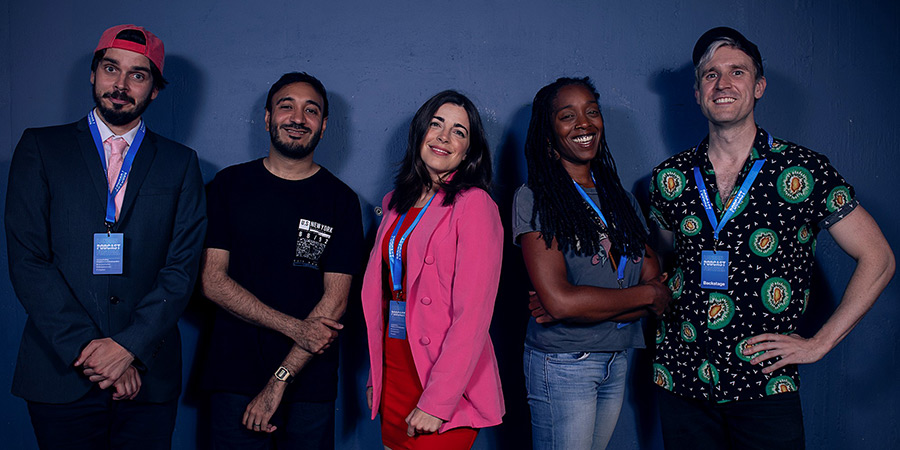
Talk us through a typical day.
Almost everything is remote now, so I'll be sat at my laptop no matter what. Usually it's a matter of reading stuff that's been sent to me (far too slowly...), responding to emails, preparing pitches, and making sure everything's sorted for the recording day, because while I worked on 78 programmes in 2023, I think I only recorded on about 50 different days.
On a recording day it's about making sure the recording goes smoothly. For NonCensored, we normally choose topics and ask guests on a Wednesday afternoon, and record between about 9am and 11am on a Thursday morning. I'll then start editing, usually taking a break to do the school run if it's needed and have dinner with my children. I try to have the show finished by about 10pm, but it's generally around 1am-2am that all the admin is done and I can publish it and go to bed.
I'm married with two children (albeit fairly self-sufficient high schoolers), so if I record in the evening, or even just go to a gig, that's time I'm missing out with them. I don't do much work at weekends.
Tell us a trick/secret/resource that you use to make your job quicker/easier.
There are, sadly, no shortcuts. You have to listen to everything. I do like Descript's studio sound for cleaning up crappy audio, though.
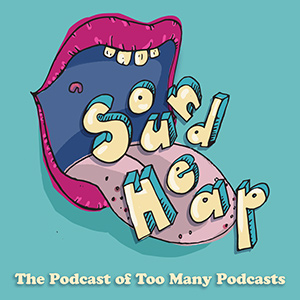
How are you paid?
I pay myself through my company (if I'm hired as a freelancer, they pay the company for my time). Because of the way commissions work - you get 50% of the budget up front, and 50% when it goes out, which is well after everyone else has needed to be paid, so you're out of pocket until then - I have a very low salary, which is topped up when the final chunk of money for a project comes in.
If you could change one thing about the comedy industry, what would it be?
I would create a separate "Entertainment" category for podcasts and put all the chat shows in there. No-one says, "I loved comedy as a kid, so I never missed an episode of Wogan". The comedy categories should be reserve for people doing comedy.
What tips would you give for anyone looking to work in your area of the industry?
I'm almost certainly no help here; I got my foot in the door over twenty years ago and, because that came with the opportunity to make stuff, I built up a track record which means that a) industry people know who I am and b) I don't have to persuade them, in general terms, that I know what I'm doing.
If I was 22 now and had no experience I doubt I'd have gotten through the door at the BBC. So my advice is to build your own track record - make a podcast, get involved in your local comedy scene and radio stations, and look out for opportunities that are specifically for new talent. Also, if you want to work in a field, it's good to be as knowledgeable as possible; I've met a staggering amount of people who say they want to produce audio comedy but who don't listen to much Radio 4...
Series 2 of Sound Heap, the podcast produced by Ed, is now available via Maximum Fun
This article is provided for free as part of BCG Pro.
Subscribe now for exclusive features, insight, learning materials, opportunities and other tools for the British comedy industry.


